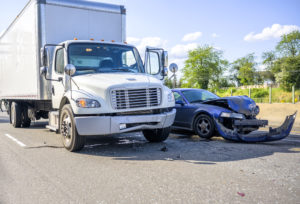 Dealing with the aftermath of a car accident can be overwhelming. In addition to the shock, you’ll need to handle insurance companies while also figuring out the next steps. But it’s important not to forget about the legal aspects.
Dealing with the aftermath of a car accident can be overwhelming. In addition to the shock, you’ll need to handle insurance companies while also figuring out the next steps. But it’s important not to forget about the legal aspects.
Reporting a car accident may seem like just another task, but it’s crucial. If it’s not handled properly, there could be consequences. A lawyer has to present a copy of the traffic crash report if they want to file a claim. Here are the answers to some of the common questions related to reporting car accidents.
1. Do I Have to Report Every Accident?
In most states, if there is substantial damage or an injury, or if the property damage exceeds a certain amount, you are required to report an accident.
Failing to report could result in a fine or affect your insurance. It’s important to report the accident promptly, especially if it involves injury or death.
It’s better to be safe and report even seemingly minor accidents. Legal issues over avoidable matters are something you want to avoid.
2. What Exactly Goes into the Crash Report?
A crash report contains important details that are valuable for insurance companies or lawyers. It includes specific information about the who, what, when, where, and how of the accident, incorporating accounts from multiple perspectives such as drivers, witnesses, and the reporting officer.
This report, completed at the scene, records various details, such as road conditions and time of day. Remember to obtain a copy of the traffic crash report, as it is crucial for making claims or resolving disagreements.
3. How Do I File a Report If the Police Don’t Show Up?
If law enforcement doesn’t show up, especially for minor accidents, you may have to make the report yourself. This might seem annoying, but it’s important. Depending on where you are, you can go to your local police station or file the report online.
It’s quite simple, but make sure you have all the details: license plate numbers, the other driver’s information, insurance details, and any available witness statements.
Just because there wasn’t an officer present doesn’t mean the accident didn’t happen. It’s important to have an official record in case someone tries to change the facts later on.
4. Will Not Reporting an Accident Hurt My Insurance Claim?
If you don’t report the accident, your insurance company might deny your claim. They need everything documented, including reports and evidence of the accident. If you fail to document the accident, they may question whether it happened, or if you are trying to trick them.
Calling your insurance company right after the accident is important. They can guide you on what steps to take and ensure a smooth process for your claim. Not doing this could lead to a significant bill for you.
5. What If I Get Into an Accident With an Uninsured Driver?
If you’re ever in a car accident and the other driver doesn’t have insurance, here’s what to do: First, stay calm. It’s essential to report the accident, even if the other driver doesn’t have insurance. This will create a written record, which can be important if the case goes to court.
Depending on your policy, your insurance may cover you through your uninsured motorist coverage. This is why having good insurance is crucial. They will help with the expenses and manage the legal aspects.
If you don’t have this coverage, your lawyer can help you explore your options. Filing a report is crucial, as ignoring it might lead to financial troubles.
Conclusion
When reporting a car accident, it’s more than just a formality. It’s an important step that could significantly affect any future legal or insurance claims. While the paperwork may seem overwhelming and handling all those reports may seem like a lot, ultimately, it’s about protecting yourself.
Make sure you know what steps to take, and don’t let the confusion or stress of the situation stop you from submitting the report. Always make sure you get a copy of everything – it’s your important resource in all of this confusion.


